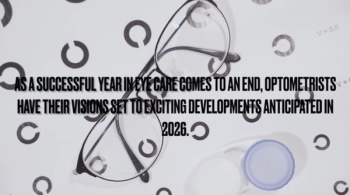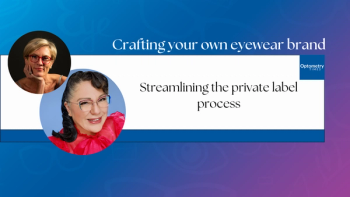
Five Ways Google AdWords Can Give Your Optometry Practice a Boost
Sponsored by:
Potential patients are firing up their computers and turning to their smartphones as they embark on researching their healthcare decisions, and that includes which eyecare providers they seek out.
A prospective patient might interview you or ask for recommendations, but it’s likely that he will visit the Internet powers-that-be at some point in this process. You should put your best foot forward online.
This phenomenon of patients searching the Internet for healthcare information stresses the importance of having a cohesive and
coherent online presence. While this is typically thought of as an artistic and poetically-written website, online advertising is taking the reins on how influence is created within consumer groups.
You can rack up an expensive bill in making a beautiful website, but it will not mean anything if Internet searchers cannot find you.
Thankfully, with the invention of Google AdWords, advertisers have more control over who sees their online ad and when they see it. The tool from Google allows you to select your desired audience and choose which search terms your ad will appear next to in the Google search results. The best part, it is a pay-per-click model, so you only have to pay when the internet searcher actually clicks on your ad.
Here are five tips on how optometrists can run successful
1. Customize your search terms
What specific services does your practice offer? What search terms do you think people would use to find a new eye doctor?
Consider these questions when selecting which keywords to align with your advertising campaign and be as general or specific in your terms as you’d like.
Don’t want to guess? The Google AdWords Keyword Tool can give you the exact keywords searchers use.
This campaign’s impressive results reminded us it is possible to cast a wide net and still convert quality leads - the trick is being thoughtful about your search terms.
2. Take advantage of your location
Especially in an industry like optometry where it’s important to be physically accessible to customers and patients, making your contact information clear is a must.
Furthermore, because AdWords allows you to incorporate specific location targets into campaigns, many advertisers will hone in on a radius around their locations (you can literally show your ads only to people within a specific distance of your practice). Using location as a selling point to clients and as ad targeting to better reach your intended audience, you develop a well-rounded approach for a simple piece of information.
3. Don’t make the same mistakes twice
Many clients come to us after they have been using Google AdWords without seeing a lot of results. Most of them have been letting their campaigns run on autopilot because they are too busy running their businesses to keep up with trends.
We analyze the data Google collects from past campaigns and consider it to be a goldmine. This data, called a “search query report,” shows us what worked and what did not.
Sure, people were clicking on your ads, but did they end up scheduling an appointment, or were they even relevant searches? If not, this is wasted marketing budget, and you are paying for every click.
4. Let your ad tell the story
Why would a prospective patient book an appointment with you over another clinic down the street? Think hard about what differentiates your business from your competition-do you offer free consultations?
Your advertising copy should reflect the reasons you stand above everybody else and should manifest in a strong call-to-action.
5. Your website should seal the deal
When a quality lead clicks through to your website, make sure they are greeted by your clear call-to-action and contact information.
Internet searchers have notoriously low attention spans, so make it clear at a glance what you want them to do. In addition, depending on what type of ad grabbed their attention, send searchers to the right page on your website.
Keeping these tips in consideration can help ensure your money is well spent. While Google AdWords offers more control over how budgets are allocated, advertisers must implement a smart strategy to reap the benefits.
Need Google AdWords help?
As a courtesy to Optometry Times readers, Logical Position is offering a $150 AdWords credit for new customers or a free assessment of your current AdWords campaigns.
Newsletter
Want more insights like this? Subscribe to Optometry Times and get clinical pearls and practice tips delivered straight to your inbox.













































.png)


